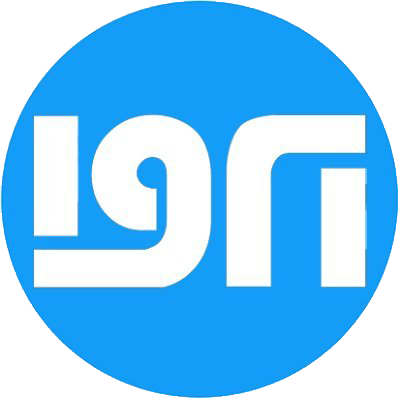Home » Events & Training » IGRI Research Seminar
The IGRI hosts a monthly virtual research seminar that features presentations by scholars from around the world interested in examining the antecedents, structure, and implications of institutional design leveraging the Institutional Grammar.
The seminars are held on the first Tuesday of every month from 12:00 – 1:00 p.m. U.S. Eastern time at the Zoom links listed with each individual seminar. Seminars are typically recorded and posted to the IGRI YouTube Channel.
See below for the schedule of speakers and topics (upcoming & past).

Groundwater management in Iran is complex, challenged by exacerbating water scarcity and groundwater depletion. Despite changes in the country’s water policies and laws, groundwater depletion has intensified. This study analyses two key groundwater laws, the Equitable Distribution of Water Resources Law and the Ta’een Taklif Law, to systematically identify the challenges within these laws that may accelerate depletion.
Using Institutional Grammar, the laws were analyzed according to ADICO components: Attribute, Deontic, alm, Condition, Or else (ADICO). The analysis reveals that both laws are norm-based, with limited enforcement mechanisms. Attribute Components reveal a government-centric approach, making the government the primary actor and well users passive. alm components indicate that unauthorized wells, part of the current problematic situation, may eventually be legalized. Condition Components are vague and contradictory, hindering effective enforcement. While the laws establish obligations (Deontic), they lack specified penalties (Or else) for non-compliance.
The paper concludes with the need for a comprehensive change in water policy leading to laws that maintain a balanced integration of norms and rules to create a robust groundwater management.

Carlos Alberto Prieto Valero, European University Viadrina
Institutions shape economic outcomes, a fact recognized by Nobel Price winners Daron Acemoglu & James A. Robinson, Douglas North, and Oliver Williamson. In entrepreneurial ecosystems, governance structures define interactions among actors, influencing innovation and cooperation. Despite growing research on entrepreneurial ecosystems, governance remains underexplored. This study identifies and analyzes modes of governance in ecosystems using the Institutional Grammar method (2.0), a tool for analyzing institutional design that has become much more important in recent years.
Entrepreneurial ecosystems are dynamic networks of actors, institutions, and resources that foster interaction, serendipity, and innovation. Heilbronn – not very well known internationally – was selected as a case since it now seeks to become Europe´s leading AI Ecosystem, driven by tremendous investments.
Our research question is: What is the governance approach of the entrepreneurial ecosystem in Heilbronn, and how should it be developed to enhance productive interactions? Our study identifies and discusses governance patterns in the emerging ecosystem. It contributes to governance theory by offering a better understanding of governance in entrepreneurial ecosystems and provides practical recommendations for policymakers and stakeholders to enhance governance mechanisms.

Ute Brady, Arizona State University
Ismael Lare David, University of Zaragoza
Daniel Detzi, United States Air Force Academy
Irene Pérez Ibarra, University of Zaragoza
Alicia Tenza-Peral, University of Zaragoza
This IGRI Working Group focuses on discussing the design of efficient tools for collecting rules-in-use from ethnographic research, including in-depth interviews, focus groups, or participant observation. The goal is to create a protocol for collecting and later using the grammar to codify rules-in-use. The specific objectives are:
1) Share experiences in collecting rules-in-use
2) Design the elements of an interview/focus group guide to correctly collect institutional statements, maximizing the number of grammar elements and minimizing the need to use “by default” conditions.
3) Discuss rewards and sanctions in rules, norms, and strategies (direct, emotional, and tangible consequences).
4) Design an open access protocol for collecting and analyzing institutional statements from qualitative ethnographic research.
Activities will include participating in the online meetings, sharing experiences, and collaboratively creating the protocol for the study of rules-in-use. The protocol will be open access and co-authored by all members of this working group who actively participated in the meetings and writing of the protocol.
Daniel Detzi, University of Arizona
Mazaher Kianpour, Norwegian University of Science and Technology
Thomas Skuzinski and Carolina Velandia Hernandez, Northern Illinois University
Kate Albrecht and Jason Michnick, University of Illinois Chicago
Cali Curley, University of Miami
Seemi Waheed, University of Management and Technology
Giulia Bazzan, Copenhagen University
Batoul Mesdaghi and Amineh Ghorbani, TU Delft
Santiago Virgüez-Ruiz, Brenda Bushouse, Doug Rice, and Charlie Schweik, University of Massachusetts Amherst
Seth Frey, University of California Davis
Nataliya Stupak, Johann Heinrich von Thünen Institute
Saba Siddiki, Syracuse University
Christopher Frantz, Norwegian University of Science & Technology
Ute Brady, Arizona State University
Leander Bindewald, Independent researcher and consultant
Aaron Lien, Liz Baldwin, and Tom Evans, University of Arizona
Matia Vannoni, King’s College London
Moritz Osnabrügge, Durham University
Silvana Peralta, National Ministry of the Environment, Paraguay
Mahasweta Chakraborti, University of California, Davis
Christopher M. Weible & Tanya Heikkila, University of Colorado Denver
Ute Brady, Syracuse University
Jacob Bower-Bir, Indiana University
Claudio Radaelli, European University Institute
Claire Dunlop and Jonathan Kamkhaji, University of Exeter
Gaia Taffoni, European University Institute
If you would like to join our email listserv to receive notifications of upcoming seminars, workshops, training sessions, and other activities, please subscribe!
